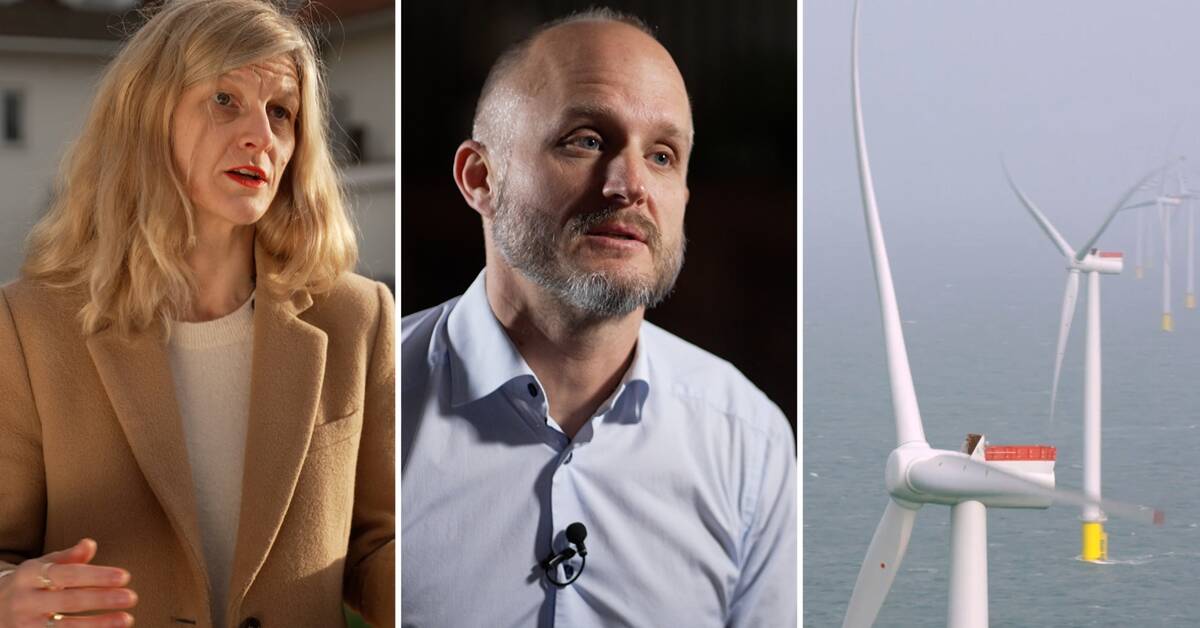When SVT's Agenda held a hearing with researchers and parliament politicians on energy policy on Sunday 13 November, wind power expansion was one of the big issues.
In the Tidö Agreement, M, KD, SD and L have agreed to drop support for offshore expansion.
The support means that the wind power companies would receive help from Svenska kraftnät to pay for the connection to the main grid.
- If we look at our neighboring country Denmark, for example, we see that there you are moving towards a market where there are no government subsidies, so it is quite obvious that it is extremely lucrative even if you have to pay for the connection costs yourself, said Louise Eklund (L), member of the Riksdag's business committee, in Agenda's hearing.
But that is not generally true, according to Svenska kraftnät.
"The majority needs support"
- There are individual projects in Denmark that have very favorable conditions, where subsidies have not been needed at all.
But the majority of the projects in Denmark need some form of support to get off the ground, says Daniel Gustafsson, department manager for Power Systems at Svenska kraftnät.
Louise Eklund points to the so-called energy islands that Denmark is planning, and which several actors should be able to connect to with offshore wind power.
But the large Swedish projects that are underway and awaiting permission are about wind farms far out to sea that need connection to the main grid.
Vattenfall is the only operator to have received permission so far, and Vattenfall's CEO has come out and warned that the project may not be able to continue if they have to pay for the entire connection themselves.
But Louise Eklund is not worried that the projects will not materialize.
- Then Sweden would be an exception to all development that takes place in Europe, where we see that offshore wind power is extremely lucrative and takes place on a large scale, said Louise Eklund (L), in Agenda.
Maintains that wind power is lucrative
But when SVT examines reports and decisions in connection with Sweden introducing the support, it turns out that most countries that have offshore wind power on a large scale have some form of system for government subsidies.
In the Energy Agency's review in a 2018 report, Belgium, Denmark, Finland, Germany, Great Britain, Ireland, the Netherlands and Poland have some form of support system for connection to the electricity grid.
- The list is current.
In general, it still looks like this, says Daniel Gustafsson on Svenska kraftnät.
- There is support for many different types of energy in different countries, says Louise Eklund.
But how could you then say in Agenda that Sweden would be an exception if subsidies were needed here?
- I said that the direction is that you don't need government subsidies, says Louise Eklund (L).
She maintains that wind power can be said to be lucrative.
- We see that in the applications for permits to build in the various locations, she says.
The protracted and uncertain processes for obtaining permission must be speeded up according to the Tidö agreement.
But more information about the connections that Svenska kraftnät would be responsible for is delayed.
Minister of Economic Affairs Ebba Busch (KD) announces that she will return later.

